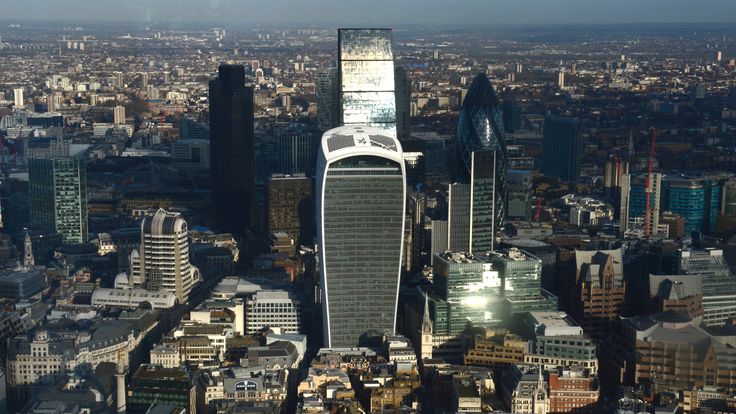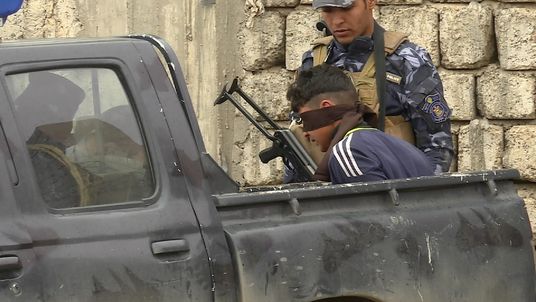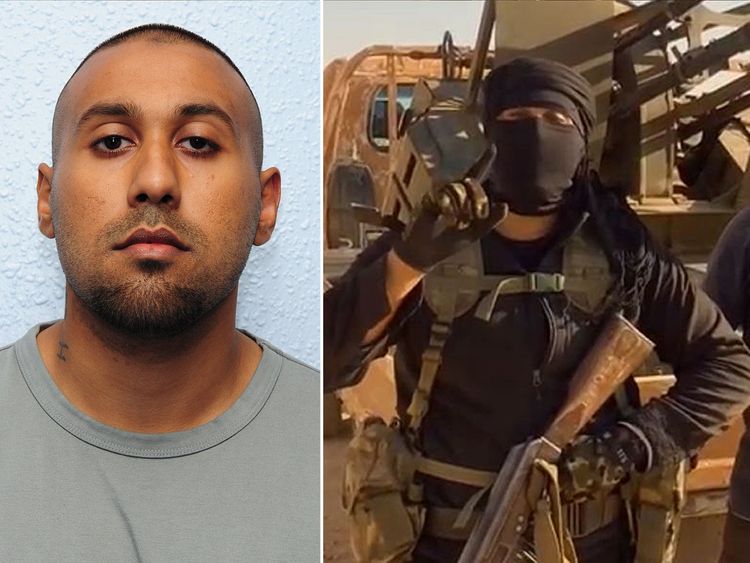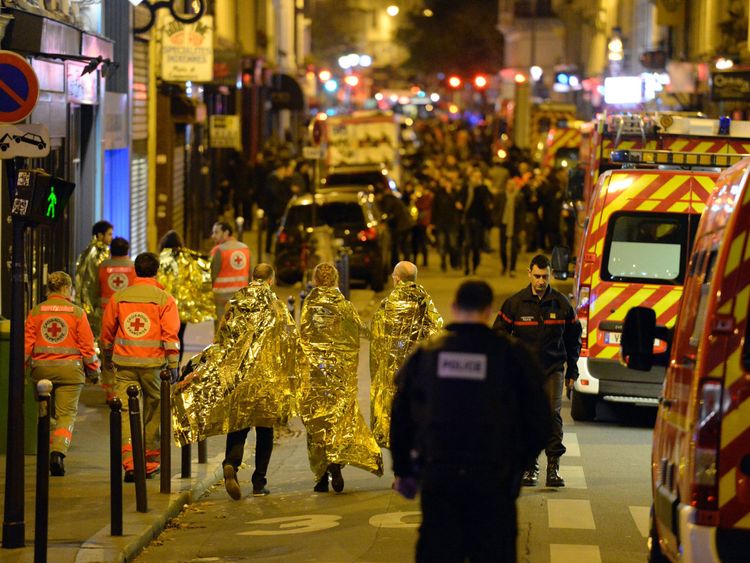
Authorities believe there is a growing risk the UK could suffer mass gun and bomb attacks
UK authorities are facing an increased terror threat from battle-hardened fighters returning from Mosul and other conflict zones in Iraq and Syria.
Security sources have told Sky News more than 400 former fighters are now believed to be back in Britain.
The authorities believe there is a growing risk the UK could suffer the kind of mass gun and bomb attacks seen in France and Belgium recently, as many returning fighters will have been trained in the use of weapons and the construction of improvised explosive devices.
It is a serious, two-pronged challenge for the police and security services, who are already working flat-out to counter the threat from homegrown lone-wolf extremists, like Khalid Masood, who launched last week's deadly attack on Westminster.

Mosul snatch squads hunt IS suspects
Former Scotland Yard Specialist Firearms Officer and author Tony Long said combating an attack launched by a well-trained returning jihadist could be a tough prospect.
He said: "These are combat-hardened soldiers. They might not be trained in the way that NATO might train their soldiers but they've seen more close quarter conflict and more urban fighting than probably most members of the British Armed Forces and you have to respect that.
"Of course they're bringing that knowledge back with them to the UK and it's very very difficult because of the legal restrictions that are put on the security services and the police to actually monitor all of these people."

Imran Khawaja was jailed for 12 years after returning from Syria
To date, only a fraction of those returning from the battlefields of Syria and Iraq have been prosecuted, as authorities need enough evidence to put before the courts and often returning fighters go to great lengths to cover up their overseas activities.
Imran Khawaja, 29, from west London, is currently serving 12 years in prison after he faked his own death in Syria in an attempt to sneak back into the UK undetected.
Khawaja had joined a militant group with links to so-called Islamic State while overseas.
He was pictured posing with the severed heads of Syrian soldiers during his six months in the country.
He was arrested as he tried to re-enter the UK through the port of Dover and later admitted preparing for acts of terrorism, attending a camp, receiving training and possessing firearms.

The aftermath of the Paris attacks - some of the terrorists involved had fought in Syria
Security sources said they could not be certain that Khawaja would have launched an attack back home, but the pattern of returning jihadists posing a major risk to national security is well established.
More than a decade ago, groups of al Qaeda trained terrorists were responsible for mass carnage in Europe and the United States.
Those who launched the devastating attack on the London transport system on 7 July 2005 had attended al Qaeda training camps in Pakistan and Afghanistan.
Some of the terrorists who launched a similar failed attack on London on 21 July 2005 had received weapons and explosives training, as had some of the plotters who planned to blow up airliners with liquid bombs in 2006.
Security expert Professor Tahir Abbas from the Royal United Services Institute said: "The police and security services are certainly preparing for all eventualities, because in Britain, we've had our lessons from the past.
"These returning fighters pose a number of threats in relation to security here.
"They've been through a lot of very traumatic conflict and engagement, often involved in street-to-street fighting.
"Now, having made their way back to Britain, they pose a particular threat because of their capacity - and perhaps they've been instructed to return, hold fire and wait for the go ahead to launch attacks.
"They are likely to be traumatised, but also extremely experienced and well trained individuals who pose a serious risk."
With the growing threat from returning fighters, emergency services have been increasing their training to respond to gun and bomb attacks.
On March 19, more than 200 police officers carried out a training exercise on the River Thames, where police firearms teams boarded a boat in a training scenario involving dozens of hostages.
The UK government has provided millions of pounds in extra funding to help Chief Constables across country to increase their firearms capability to respond to a terrorist attack.
http://news.sky.com/story/battle-hardened-returning-jihadists-pose-uk-terror-threat-10815737

No comments:
Post a Comment